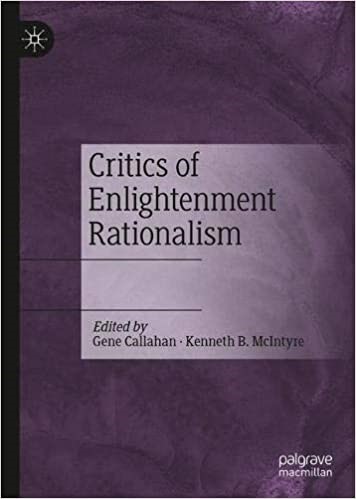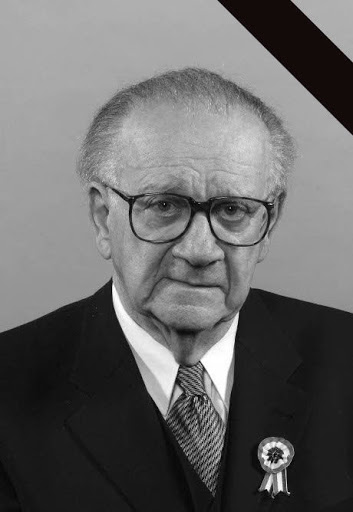
Westernisers and “Narodniks". Project opening conference
The Institute of Philosophy, Research Centre for the Humanities, cordially invites you to the upcoming opening workshop of the bilateral research project of the Polish and Hungarian Academies of Sciences, entitled Westernisers and “Narodniks”. Dichotomous Identity-Generating Narratives in the 19th-20th century Polish and Hungarian Intellectual History (2020–2022). The programme of the workshop and the abstracts of the presentations are available here.
Date: Thursday, 30 July, 2020, 11h AM – 17h PM
Venue: 4. Tóth Kálmán street, Room: B.5.33
Due to the pandemic rules, registration is required by the following e-mail address:
Registers of Philosophy, 2020/2.
Registers of Philosophy 2020/2. Günter Figal: Description and Conceptuality
Registers of Philosophy, 2020/1.
Registers of Philosophy 2020/1. Csaba Olay: Comments on Sharon Rider's Paper
Talk by Ferenc Hörcher
The Institute of Philosophy, RCH, cordially invites you to the upcoming talk
Ferenc Hörcher
Prudence, Moderation and Tradition: A Political Philosophy of Conservatism
The talk will be online.
Abstract:
This talk provides an overview of the speaker’s recently published book, entitled A Political Philosophy of Conservatism (2020). It will focus on the three concepts presented in the subtitle of the book: prudence, moderation and tradition. All the three are connected to the Ancient Greco-Roman and Christian tradition of European thought.
The last of the three terms is relatively unproblematic. It refers to the importance of communal knowledge for conservative politics, a form of tacit knowledge, a common sense, encoded in habits, customs and informal or formalised manners, including legal regulations, which is transferred from generation to generation in a given political community. The first two needs some further explanations.
Moderation will be presented as an appropriation of Aristotle’s teachings of the golden mean, as the most appropriate choice between two extremes. This idea is based in Aristotle on a theory of harmony and balance, and the paper will look at its relevance in politics. It will be argued, that Aristotle’s theory calls our attention to the balancing political role of the middle classes. Also, it will be argued that the idea of the mixed constitution is connected with this Aristotelian theory of balance and harmony (Greek armonia, lat. concordia).
Finally, the book’s most important term is prudence, referring to the cardinal virtue of prudentia (Greek phronesis). The claim is that while the virtue of justice (iustitia) is usually taken as the key concept of Christian and modern liberal political philosophy, for a conservative understanding of politics, what is possible is always more important than what is ideal. In this sense prudence precedes justice, while still keeping intact the coherence of the four cardinal virtues. In this regard the importance of Cicero for this version of conservatism will be noted. The talk will end with a description of the character of a practically wise (prudent) political agent.
Commentator: Walter Nicgorski (University of Notre Dame)
Date: 26 May 2020 (Tuesday), 2pm
You can join by clicking on the link below.
https://meet.jit.si/Filozófiai_intézet_szeminárium
The recording can be accessed via the following link:
Ferenc Hörcher’s chapter published on Edmund Burke
Ferenc Hörcher’s chapter on Burke on Rationalism, Prudence and Reason of State has been published in a volume entitled Critics of Enlightenment Rationalism.

The book, which has been edited by Gene Callahan and Kenneth B. McIntyre, and published by Palgrave Macmillan, Cham, 2020., gives an overview of different reactions against Enlightenment Rationality by political thinkers and philosophers.
Balázs Gyenis' talk
Balázs Gyenis is giving an invited talk in the conference titled "Causation and Reduction: From Metaphysics to the Sciences", organized by the University of Illinois, on the 4th of April (due to travel restrictions the conference moved online). Details can be found here.
A special issue on György Szabad, the historian
Iván Zoltán Dénes and Ferenc Hörcher were the guest editors of the thematic issue of Magyar Tudomány, the official journal of the Hungarian Academy of Sciences, on the academic achievements of the late Professor György Szabad (1924-2015), a historian of the classical age of 19th century Hungarian political history. The thematic issue is available here in Hungarian.

The table of contents is as follows (each article is online, and has an English language abstract):
Iván Zoltán Dénes, Ferenc Hörcher: BEVEZETÉS (Introduction)
György Miru: SZABAD GYÖRGY ÉS A MAGYAR TÖRTÉNETÍRÁS FÜGGETLENSÉGI PARADIGMÁJA (György Szabad and the Paradigm of Independence in Hungarian Historiography)
Róbert Hermann: SZEMÉLYES VAGY TUDOMÁNYOS? KOSÁRY DOMOKOS ÉS SZABAD GYÖRGY VITÁJÁNAK ELŐZMÉNYEI (Personal or Scientific? The Precedents of the Domokos Kosáry and György Szabad Debates)
Iván Zoltán Dénes: EGY SZOKATLAN VITA (An Unusual Discussion of a Monography)
Ferenc Velkey: SZABAD GYÖRGY AUTOBIOGRÁFIÁI (György Szabad’s Autobiographies)
László Csorba: SZEREPLŐ ÉS VISSZATEKINTŐ – EGY SZÖVEGTÍPUSRÓL JEGYZETKÉSZÍTÉS KÖZBEN (Actor and Retrospective Observer – About a Text-type during Note Making)
Talk by Gábor Hofer-Szabó in Barcelona
Gábor Hofer-Szabó gives a talk with the title “Simultaneous versus measurement contextuality in quantum theory” on March 9th at the University of Barcelona, organized by LOGOS - Research Group in Analytic Philosophy.
More Articles …
Page 16 of 59


